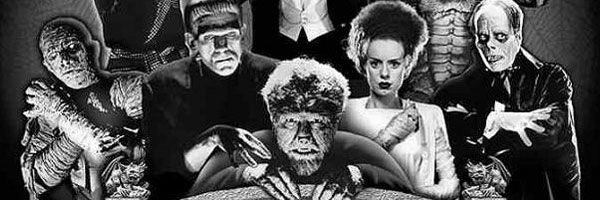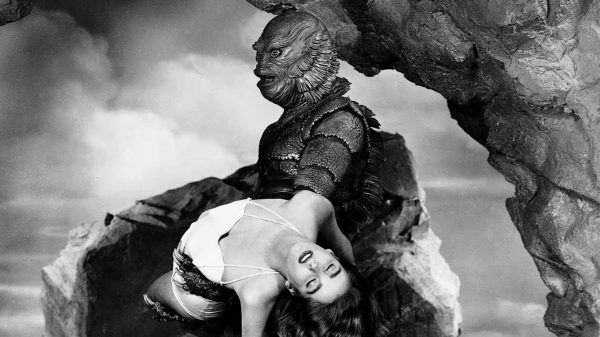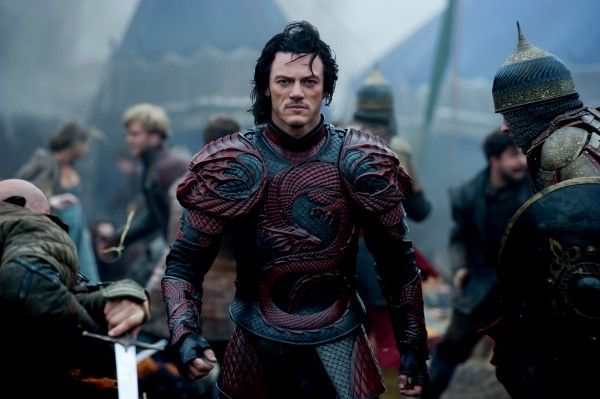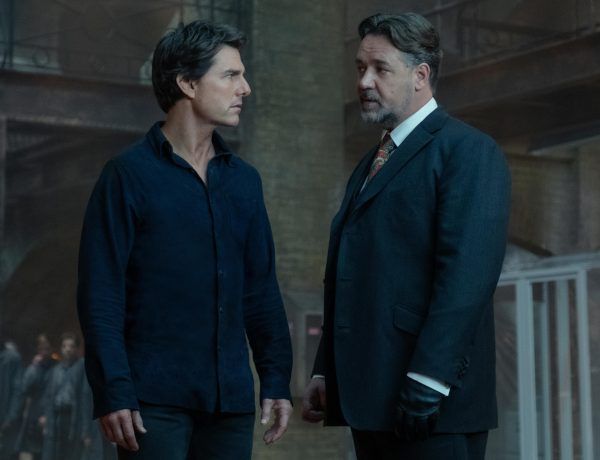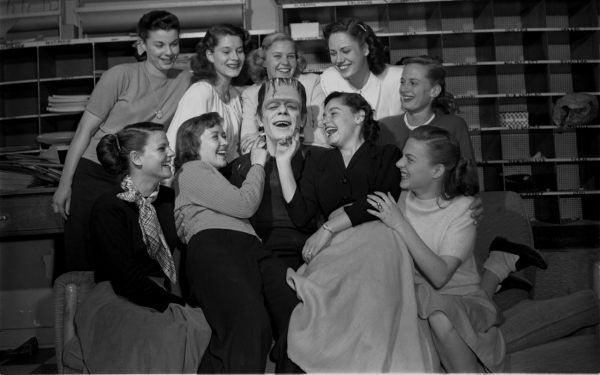The Invisible Man releases this week, the latest reimagining of one of Universal’s classic monster movies. Although it’s technically based on the H.G. Wells novel, the hallmarks of the story are largely recognizable thanks to the original 1933 adaptation starring Claude Rains, just as Frankenstein’s monster has become inevitably paired with the bolt-necked ogre portrayed by Boris Karloff, and Dracula has become inseparable from Bela Lugosi’s weirdly seductive caped magician. Universal created one of the first (if not the first) franchises in Hollywood history with its monster movies, and absolutely created the first cinematic universe when they started having those monsters meet each other and hang out with Abbott and Costello. It was a different time.
It didn’t have the spectacle of the Marvel Cinematic Universe (to my knowledge Frankenstein and the Wolf Man never had to undo history to defeat Josh Brolin), but it absolutely followed the same road map by introducing each monster character in their own films before bringing them together in team-up movies down the line. Interestingly, the concept of spinning the monster characters off into a shared universe of films was born by accident. Universal’s horror franchise was essentially dead after 1936’s Dracula’s Daughter, but was revitalized by the unexpected success of a random theater owner playing Frankenstein and Dracula as a double feature. That success spawned 1939’s Son of Frankenstein, which featured Karloff and Lugosi in the first unofficial crossover film in the Monsters franchise. The first true crossover would come four years later, with 1943’s imaginatively titled Frankenstein Meets the Wolf Man. Not "Versus". "Meets." Like they bumped into each other at Barnes and Noble.
But Universal has struggled mightily over the past twenty years to revitalize their Classic Monsters, despite the fact that they pulled it off quite successfully back when audiences demanded a lot less from their movies. I would say I just stumbled upon the reason for their recent string of failures (and maybe I have), but every single one of their characters has become an instantly recognizable pop culture icon. Who can’t immediately identify a picture of Karloff’s Frankenstein, or the Gill-Man from Creature From the Black Lagoon? Genre films like horror and comedy constantly evolve over the decades, so it's not like a modern film featuring these characters can’t be scary. The Invisible Man, from writer/director Leigh Whannell, looks legitimately terrifying. And while Joe Johnston’s 2010 butter fart The Wolfman may have been little more than a bony wolf turd starring the wax sculpture of Benicio del Toro and an Anthony Hopkins who perpetually looks like he cannot believe how much he is being paid to be there, it absolutely delivered on the werewolf gore front.
After the surprise success of Stephen Sommers’ 1999 hit The Mummy, Universal spent the next decade trying to reboot the rest of their Classic Monsters. They only actually succeeded in making Van Helsing, which was essentially a reboot of House of Dracula if the original negatives were destroyed in a warehouse fire and they had to recreate the film using nothing but tea leaves and an episode of Scooby-Doo with the sound turned off as references. 2010’s The Wolfman was meant to be part of this reboot-surge, but it famously languished in development hell for years, changing directors and even composers up until the last minute. By the time the movie finally hit theaters, not only was it only a few notches above eating human remains as an entertaining way to spend an evening, but it was also about a decade too late to cash in on The Mummy’s success. Also, the VOD-mainstay Scorpion King franchise is technically part of the Classic Monsters universe, but that's approximately all of the words The Scorpion King deserves.
2014's Dracula Untold, an origin story starring Luke Evans in the title role and Charles Dance as a vampire Caligula (yes, that Caligula), was a reasonable success. And despite the fact that Universal hastily added a post-credits scene meant to spin Dracula Untold off into a revitalized Classic Monsters universe, they quickly abandoned those plans in favor of the Dark Universe.
Who could forget Universal’s Dark Universe, the most embarrassing called shot since Doug’s First Movie. The studio put a considerable amount of marketing juice behind a big-budget remake of The Mummy, starring international megastar Tom Cruise as a man who cannot stand to let immortal power lie in the hands of a woman. To herald the birth of the Dark Universe, Universal assembled a team of actors in their 50s to stage a hubris-laden photoshoot, because everyone knows the secret to a long-lasting franchise is hanging it on a bunch of men who will hit retirement age by the time the second film rolls around.
The Mummy was supposed to kick off an Avengers-style franchise of connected films starring their stable of Classic Monsters, working together in a gothed-out version of Nick Fury’s S.H.E.I.L.D. And the cornerstone of this madness was to be Russell Crowe’s Henry Jekyll, a benevolent man of science wrestling with the curse of having to constantly inject himself with serum lest he transform into a slightly angrier man of the exact same height and build who beats people up for little to no reason. Basically, he turns into 1990s Russell Crowe. Imagine if Bruce Banner just sporadically transformed into a drunk and angry Mark Ruffalo, and that’s the level of fantastic spectacle The Mummy promised us. Also, somehow Tom Cruise becomes The Mummy at the end but isn’t actually a mummy and is more just Tom Cruise With Powers. In case you can’t tell, this movie is a flaming meteor of dogshit. Instead of launching a cinematic universe, it became the latest in a series of lessons about why you should wait to see if people actually like your film before you try to turn it into a franchise.
Meanwhile, the Oscar-winning film The Shape of Water was initially a pitch Guillermo Del Toro made to Universal about a Creature From the Black Lagoon reboot. Universal rejected the idea, presumably because they felt that Gill-Man and Julie Adams actually ending up together was a bridge too far for their franchise plans. Good thing they passed on Del Toro’s Best Picture-winning idea and dumped $200 million into a Tom Cruise Mummy reboot. It's seems like Universal couldn't decide whether to make their Classic Monsters action heroes or scary villains, and wound up making a handful of movies that were just dull and forgettable.
But here’s the thing - they don’t have to be scary. They can be weird fantasy romances like The Shape of Water, or even more outside-of-the-box ideas that don't look like every other bland action film currently clogging up the box office. Right now, Paul Feig (he of Freaks and Geeks, Bridesmaids, and Ghostbusters 2016 fame) is working on a Monsters film called Dark Army, which will reportedly feature a mix of both classic characters and new creatures, and that’s a freaking great idea. Making bizarre comedy films is part of the Universal Classic Monsters’ DNA. Do more of that, Universal. Who doesn’t want to see Seth Rogen and Rose Byrne move in next door to the fucking Wolf Man? And speaking of bizarre comedies, Universal recently announced that they’re producing Monster Mash, a musical based on the novelty song of the same name. Meanwhile, Elizabeth Banks is producing a reboot of The Invisible Woman, which she will write and direct, and star in the title role.
It really seems like Universal is taking the “fuck it” approach to building their cinematic monster universe, which is the exact spirit that made the original franchise a success. Honestly, it’s an approach that I’d love to see Marvel take, because while there’s something to be said for the baseline quality of every Marvel movie, they’ve had very public disputes with writer/directors like Edgar Wright and Scott Derrickson who tried to break the very rigid MCU mold. By allowing directors to come to them and pitch ideas that they’re actually excited to make, without worrying about how each film will tie together into a gigantic money-printing cinematic universe, Universal is finally recreating the formula that made their original Classic Monsters franchise such a success. And that formula is “complete and utter accident.”

